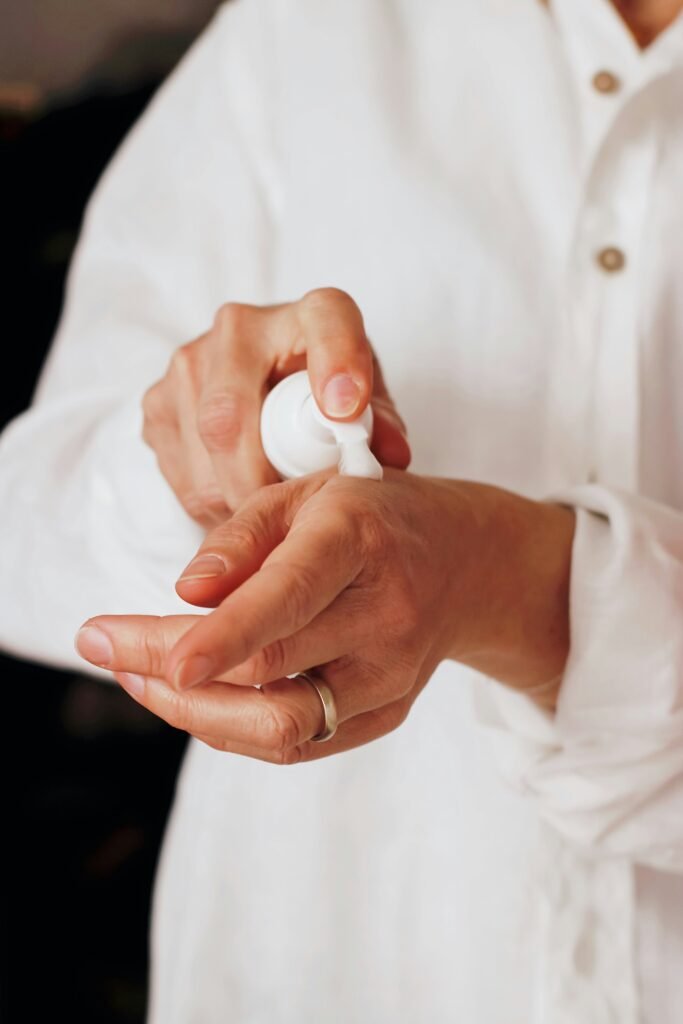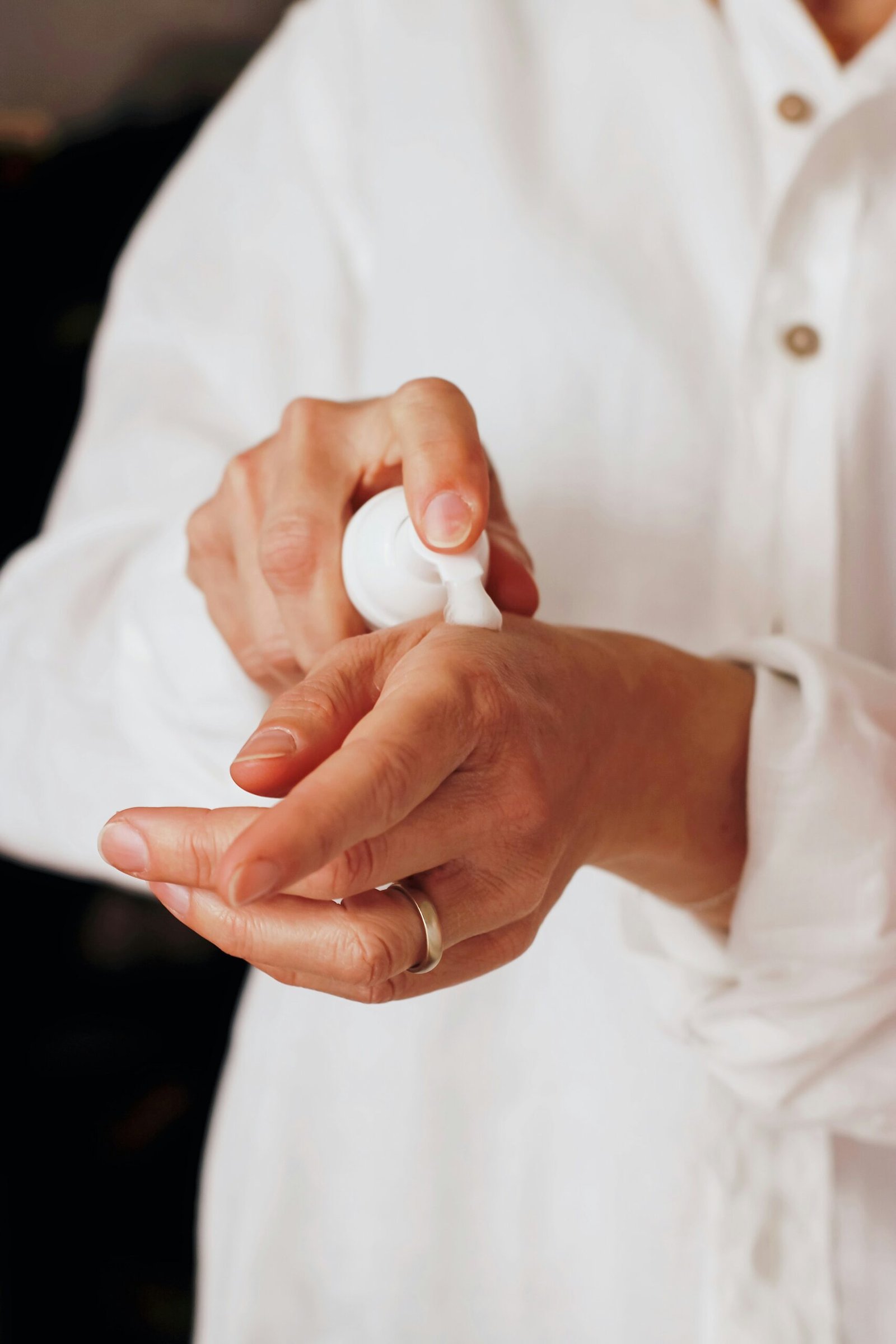Dry skin can be frustrating to deal with, especially when itchy and flaky patches refuse to go away. However, finding relief doesn’t have to involve pricey products or complicated routines. In this article, we’ll explore a variety of effective natural remedies that can help soothe and nourish your dry skin. From gentle moisturizers to skin-nourishing oils, you’ll discover simple yet impactful solutions to combat dryness and achieve a healthy, glowing complexion. Say goodbye to discomfort and embrace the power of nature’s remedies for your dry skin.

Moisturizing Oils
Coconut Oil
Coconut oil is a popular natural remedy for dry skin due to its deep moisturizing properties. It is rich in fatty acids, which help to nourish and hydrate the skin. This oil is easily absorbed, leaving your skin feeling soft and smooth. You can apply coconut oil directly to your skin after showering or bathing, or mix it with your favorite body lotion for added moisture.
Olive Oil
Olive oil has been used for centuries as a moisturizer and is known for its hydrating benefits. It is packed with antioxidants and healthy fats that help to lock in moisture and protect the skin from free radicals. Gently massage olive oil onto your skin, paying extra attention to dry areas. You can also add a few drops to your bath water for a luxurious and moisturizing soak.
Jojoba Oil
Jojoba oil is a lightweight oil that closely resembles the natural oils produced by our skin. It is easily absorbed and helps to balance the skin’s oil production, making it suitable for all skin types, including dry skin. Apply a few drops of jojoba oil to your skin and massage it in circular motions until fully absorbed. It can also be used as a makeup remover or added to your favorite moisturizer for an extra boost of hydration.
Almond Oil
Almond oil is a nourishing oil that is rich in vitamins A, E, and D. It helps to soften dry skin and soothe irritation. Massage a small amount of almond oil onto your skin, focusing on dry areas such as elbows, knees, and heels. You can also mix almond oil with honey and gently apply it as a face mask for intense hydration.
Argan Oil
Argan oil is derived from the kernels of the argan tree and is known for its moisturizing and healing properties. It is packed with essential fatty acids, antioxidants, and vitamin E, which help to nourish and protect the skin. Apply a few drops of argan oil to your skin and gently massage it in. It absorbs quickly, leaving your skin feeling hydrated and supple.
Hydrating Masks
Avocado Mask
Avocado is not only a nutritious fruit but also a great moisturizer for dry skin. Mash half of a ripe avocado and apply it to your face and neck. Leave it on for 15-20 minutes before rinsing off with warm water. Avocado is high in healthy fats and vitamins that help to replenish moisture and restore the skin’s natural glow.
Honey Mask
Honey is a natural humectant, which means it helps to retain moisture in the skin. Apply a thin layer of honey to your face and leave it on for about 15 minutes. Rinse off with warm water and pat dry. Honey not only hydrates the skin but also has antibacterial properties that can help prevent acne and soothe inflammation.
Aloe Vera Mask
Aloe vera gel is a soothing and hydrating ingredient that can provide relief to dry and irritated skin. Apply a generous amount of aloe vera gel to your face and leave it on for 15-20 minutes. Rinse off with cool water and gently pat dry. Aloe vera helps to restore the skin’s moisture balance and promote healing.
Skin-Nourishing Foods
Avocado
Including avocados in your diet is beneficial for your skin due to their high content of healthy fats and vitamins. Avocados are packed with monounsaturated fats, which help to nourish the skin from within and prevent dryness. Add slices of avocado to salads, sandwiches, or blend it into smoothies for a delicious and hydrating treat.
Salmon
Salmon is a great source of omega-3 fatty acids, which help to keep the skin moisturized and reduce inflammation. Including salmon in your diet can help improve dry skin and promote a healthy complexion. Grill or bake salmon fillets and enjoy them with a side of steamed vegetables for a nutritious and skin-nourishing meal.
Nuts and Seeds
Nuts and seeds like almonds, walnuts, flaxseeds, and chia seeds are rich in healthy fats, vitamins, and minerals that promote healthy skin. They provide essential nutrients that help to keep the skin hydrated and prevent dryness. Snack on a handful of nuts or sprinkle seeds onto your salads, yogurt, or smoothies to boost your skin’s hydration levels.
Dark Leafy Greens
Dark leafy greens such as spinach, kale, and Swiss chard are packed with antioxidants, vitamins, and minerals that are beneficial for overall skin health. They help to nourish and hydrate the skin from the inside out, preventing dryness and improving skin elasticity. Add a variety of leafy greens to your meals by incorporating them into salads, stir-fries, or smoothies.
Citrus Fruits
Citrus fruits like oranges, lemons, and grapefruits are high in vitamin C, which plays a vital role in collagen production and skin hydration. Consuming citrus fruits helps to boost collagen synthesis, keeping your skin plump and moisturized. Enjoy citrus fruits as a refreshing snack, squeeze their juice into water, or add slices to your salads for a burst of flavor and hydration.
Herbal Remedies
Calendula
Calendula is a herb known for its skin-soothing properties, making it an effective natural remedy for dry skin. You can use calendula-infused oil or creams to moisturize and relieve dry, itchy skin. Apply the oil or cream to the affected areas and massage gently until absorbed. Calendula helps to heal and protect the skin, promoting a healthier and more hydrated complexion.
Chamomile
Chamomile is a gentle herb that has anti-inflammatory properties and is suitable for sensitive and dry skin. Make a chamomile tea by steeping chamomile flowers in hot water and allow it to cool. Use the tea as a facial rinse or soak a clean cloth in the tea and apply it as a compress to dry areas. Chamomile helps to soothe and hydrate the skin, providing much-needed relief.
Lavender
Lavender is a versatile herb known for its calming and healing properties. It can be used to relieve dry skin and soothe irritation. Add a few drops of lavender essential oil to your bath water or mix it with a carrier oil like almond oil and massage it onto your skin before bedtime. Lavender helps to moisturize and promote skin regeneration, leaving your skin feeling soft and supple.
Aloe Vera
Aloe vera is a succulent plant that has been used for centuries to heal and soothe various skin conditions. Its gel-like substance is incredibly hydrating and can help to alleviate dryness. Apply fresh aloe vera gel directly to the dry areas of your skin and leave it on for about 15-20 minutes before rinsing off. Aloe vera moisturizes and hydrates the skin, providing relief from dry skin symptoms.
Comfrey
Comfrey is a herb that is rich in allantoin, a compound that promotes cell regeneration and helps to heal dry and damaged skin. Make a comfrey-infused oil by steeping dried comfrey leaves in a carrier oil like olive oil. Strain the oil and apply it to dry skin as needed. Comfrey helps to moisturize and repair the skin, restoring its natural moisture barrier.

Exfoliating Scrubs
Coffee Scrub
Coffee grounds are an excellent natural exfoliant that can slough off dead skin cells and reveal healthier-looking skin. Mix coffee grounds with a carrier oil like coconut oil or olive oil to create a paste-like consistency. Gently massage the scrub onto damp skin in circular motions and rinse off with warm water. Coffee scrubs help to remove dry, flaky skin and promote a smoother complexion.
Sugar Scrub
Sugar is a gentle exfoliant that can help to remove dead skin cells without causing irritation. Mix granulated sugar with a carrier oil or honey to create a scrub. Apply the scrub to damp skin and massage it in circular motions before rinsing off. Sugar scrubs help to unclog pores, improve skin texture, and allow better absorption of moisturizing products.
Oatmeal Scrub
Oatmeal is a gentle exfoliant that can soothe and nourish dry, sensitive skin. Blend rolled oats in a food processor until they become a fine powder. Mix the oatmeal with yogurt or honey to create a paste. Gently massage the scrub onto damp skin, focusing on dry areas, and rinse off with warm water. Oatmeal scrubs help to remove dead skin cells and provide hydration to the skin.
Sea Salt Scrub
Sea salt is a natural exfoliant that helps to remove dead skin cells and promote blood circulation. Mix sea salt with a carrier oil or honey to create a scrub. Gently massage the scrub onto damp skin, paying attention to rough areas like elbows and knees, and rinse off with warm water. Sea salt scrubs can help to improve skin texture and leave your skin feeling smooth and refreshed.
Honey and Yogurt Scrub
Honey and yogurt are both hydrating ingredients that can help to exfoliate and moisturize the skin. Mix equal parts honey and plain yogurt with a small amount of sugar to create a scrub. Apply the scrub to damp skin and massage it in circular motions before rinsing off. Honey and yogurt scrubs help to remove dead skin cells and provide intense hydration to dry skin.
Humidifiers
Warm Mist Humidifier
A warm mist humidifier releases warm moisture into the air, helping to alleviate dry skin caused by low humidity levels. It can create a more comfortable environment, especially during the colder months. Fill the humidifier with distilled water and turn it on in your bedroom or living room. The warm mist helps to add moisture to the air, preventing dryness and keeping your skin hydrated.
Cool Mist Humidifier
A cool mist humidifier works by dispersing cool water vapor into the air, increasing humidity levels in your home. It is especially beneficial in hot and dry climates or during the summer months when air conditioning systems can dry out the air. Fill the humidifier with distilled water and let it run in the desired room. The cool mist helps to add moisture to the air, reducing dryness and promoting healthy skin.
Ultrasonic Humidifier
An ultrasonic humidifier uses ultrasonic vibrations to break water into tiny particles, creating a fine mist that is released into the air. This type of humidifier is quiet and energy-efficient. Fill the humidifier with distilled water and turn it on in the room where you spend the most time. The ultrasonic humidifier adds moisture to the air, helping to combat dry skin and keep your skin hydrated.

Avoiding Harsh Soaps
Soap-free Cleansers
Soap-free cleansers are gentle on the skin and do not strip away natural oils, making them ideal for dry skin. Look for cleansers labeled as “soap-free” or “gentle,” as they are formulated with mild surfactants that cleanse without causing dryness. Use a small amount to cleanse your face and body, and rinse off with lukewarm water. Soap-free cleansers help to maintain the skin’s moisture balance and prevent dryness.
Gentle Syndet Bars
Syndet bars, short for synthetic detergent bars, are similar to soap-free cleansers and are designed to be mild and gentle on the skin. They contain synthetic detergents that cleanse without removing the skin’s natural oils. Wet the syndet bar and create a lather before applying it to your face and body. Rinse off thoroughly with lukewarm water. Gentle syndet bars help to cleanse without drying out the skin.
Milk-based Cleaners
Milk-based cleansers are a moisturizing alternative to traditional foaming cleansers. They are formulated with milk proteins and fatty acids that help to hydrate and nourish the skin. Apply a small amount to your face and massage it in gentle circular motions. Rinse off with lukewarm water. Milk-based cleansers remove impurities without stripping away moisture, leaving your skin feeling soft and supple.
Oil-based Cleansers
Oil-based cleansers are a great option for dry skin as they help to dissolve dirt, makeup, and sunscreen without stripping the skin’s natural oils. Apply a few pumps of oil cleanser to dry skin and massage it in using gentle circular motions. Rinse off with lukewarm water. Oil-based cleansers help to moisturize and cleanse the skin, leaving it feeling clean and hydrated.
Drinking Enough Water
Drinking enough water is essential for maintaining proper hydration levels and preventing dry skin. Aim to drink at least 8 glasses of water per day, or more if you are active or live in a dry climate. Water helps to flush out toxins from the body and hydrate the skin from within. Carry a reusable water bottle with you throughout the day as a reminder to stay hydrated.
Using Gentle Body Washes and Shower Gels
Fragrance-free Body Washes
Fragrance-free body washes are gentle on the skin and do not contain any harsh ingredients that can cause dryness or irritation. Look for body washes that are labeled as “fragrance-free” or “sensitive skin.” Apply a small amount to a loofah or washcloth and lather on your body. Rinse thoroughly with warm water. Fragrance-free body washes help to cleanse without stripping away moisture, leaving your skin feeling refreshed and hydrated.
Moisturizing Shower Gels
Moisturizing shower gels are designed to provide extra hydration to dry skin while cleansing. Look for shower gels that contain moisturizing ingredients like shea butter, glycerin, or hyaluronic acid. Apply a small amount to a loofah or washcloth and lather on your body. Rinse thoroughly with warm water. Moisturizing shower gels help to cleanse and nourish the skin, maintaining its moisture balance and preventing dryness.
Cream-based Cleansers
Cream-based cleansers are thick, creamy formulas that provide extra moisture to dry skin while cleansing. They are ideal for those with extremely dry or sensitive skin. Apply a small amount to a loofah or washcloth and lather on your body. Rinse thoroughly with warm water. Cream-based cleansers help to moisturize and soothe dry skin, leaving it feeling soft and supple.
Protecting Skin from Environmental Factors
Using Sunscreen
Protecting your skin from the sun is crucial in preventing dryness and other skin issues. Apply a broad-spectrum sunscreen with SPF 30 or higher to all exposed areas of your skin, even on cloudy days or during the winter months. Reapply every two hours or after swimming or sweating. Sunscreen helps to shield the skin from harmful UV rays that can cause dryness and premature aging.
Wearing Protective Clothing
Covering up exposed areas of your skin with protective clothing can help to shield it from harsh environmental factors. Wear long-sleeved shirts, pants, wide-brimmed hats, and sunglasses when spending time outdoors. This prevents excessive exposure to the sun, wind, and cold air, which can contribute to dryness and irritation.
Avoiding Hot Showers
Hot showers can strip the skin of its natural oils, leading to dryness and irritation. Opt for lukewarm showers instead and limit shower time to 5-10 minutes. Avoid using harsh soaps or fragrant body washes that can further dry out the skin. After showering, gently pat your skin dry with a towel and immediately apply a moisturizer to lock in the moisture.
Using Humidifiers in Dry Environments
Using humidifiers in dry environments, such as heated or air-conditioned rooms, can help to add moisture to the air and prevent dry skin. Place a humidifier in your bedroom or other frequently used rooms and set it to the desired humidity level. The added moisture in the air helps to prevent water loss from the skin, keeping it hydrated and less prone to dryness.
In conclusion, there are many effective natural remedies and practices that can help to alleviate dry skin. From moisturizing oils and hydrating masks to skin-nourishing foods and herbal remedies, there are various options to suit different skin types and preferences. Additionally, incorporating exfoliating scrubs, using humidifiers, avoiding harsh soaps, drinking enough water, and using gentle body washes can all contribute to maintaining hydrated and healthy skin. By following these tips and adopting a regular skincare routine, you can keep your skin moisturized and improve its overall complexion.
Losing weight and keeping it off can be a challenge. I’m here to show you good-tasting foods and drinks that help you lose weight, and are enjoyable to eat.




